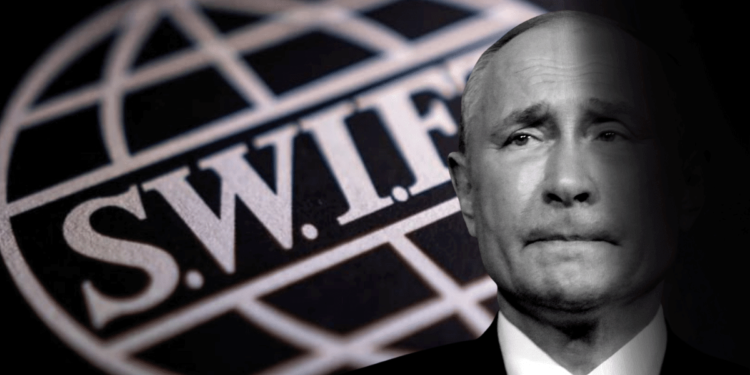Vladimir Putin’s recent decision to invade Ukraine has had a negative impact on the global financial system. Although markets have recovered this is the beginning for Russia’s economy.
The US, UK, Canada, and Europe agreed to block some Russian banks from SWIFT to “further isolate Russia from the international financial system”.
What Is SWIFT?
The Society for Worldwide Interbank Financial Telecommunication is a Belgian-based messaging system. It facilitates transactions between more than 11,000 banks and financial institutions across 200 countries. SWIFT makes cross-border payments and international trade possible.
Excluding certain Russian banks from the SWIFT system used for transactions worth trillions will hit the Russian economy, hard. The White House added that it will make Russia rely on “the telephone or a fax machine” to make payments.
Will Russia Pivot To Crypto?
According to a Bloomberg report, Russian billionaires may switch to cryptocurrencies to navigate around financial blockades and sanctions.
“If a wealthy individual is concerned that their accounts may be frozen due to sanctions, they can simply hold their wealth in Bitcoin in order to be protected from such actions.”
Mati Greenspan, CEO at Quantum Economics
Vladimir Putin is an advocate for crypto, recently going against the recommendations of his own central bank to ban cryptocurrencies. Russia currently owns around 12% of the world’s cryptocurrencies and a BeInCrypto report suggests Russias ‘Crypto Toolbox’ may help them dodge sanctions.
Despite these facts, Robbie Liu a researcher from Babel Finance told Forkast that “it is unrealistic for Russia to avoid sanctions using crypto as the market is mainly denominated in USD-pegged stablecoins.”
There are also measures in place that allow for entities to identify where transactions come from. Making it much harder for sanctioned nations to move around useful sums of money.
Chainalysis is a company that tracks cross-border criminal activities on blockchains. So far, no unusual activities have been detected within Russia or Ukraine. Head of international policy, Caroline Malcome states that “any information on relevant wallet addresses will be added to our products and available to our partners immediately,”



